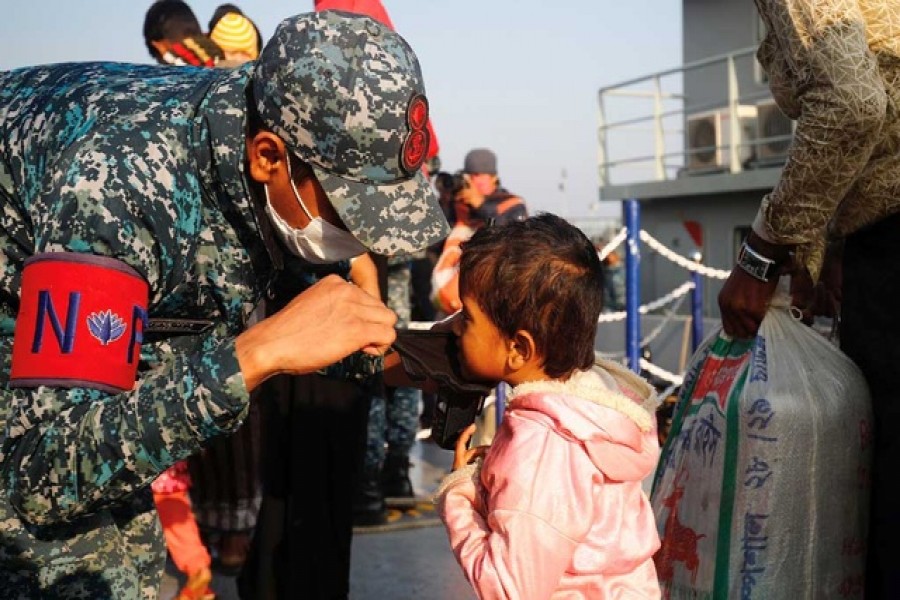International community's lack of interest in mitigating the prolonged sufferings of the Rohingya people in shanti camps is seen as a matter of shame. Their stalled repatriation speaks of sheer indifference to the issue.
It is highly regrettable that four and a half years have elapsed since the signing of repatriation agreement between Bangladesh and Myanmar in November 2017, but Myanmar has not taken back even a single Rohingya from Bangladesh. The talks between the two countries that resumed in January after a two-year break due to Covid and the military takeover in Myanmar produced naught.
Bangladesh requested Myan-mar to expedite the verification of Rohingyas to speed up their repatriation back to their homeland, but the Myanmar authorities showed no interest about it. The question is whether the Myanmar authorities are wasting time on the pretext of verifying the Myanmar nationals, who fled homes around five years ago after enduring a brutal military crackdown in the Rakhine province.
And, international funding for upkeep of the refugees has also been declining rapidly. The UN High Commissioner for Refugees said it had received barely 13 per cent of the required funds until May.
With the funding for the refugees declining, Bangladesh has been facing a huge pressure in taking care of a large number of forcibly displaced people from Myanmar.
The situation requires the international community as well as Bangladesh to put greater pressure on Myanmar so that the latter takes back its citizens by putting in place safe and conducive conditions in the Rakhine province.
According to newspaper reports, Bangladesh had handed over the names of 0.84 million Rohingyas to Myanmar authorities. But, until now, the Myanmar authorities have verified the names of around 42,000. And despite some attempts to take them back, many Rohingyas refused to return because of the uncertainties surrounding their citizenship and safety. This is only fair. Why would they go back to their country if they are not given citizenship?
But having to take their responsibility indefinitely is an unnecessary burden on Bangladesh. Bangladesh and Myanmar ought to break the stalemate by holding regular meetings of their Joint Working Group and Technical Working group.
And the international community should put pressure on Myanmar to expedite the verification process and grant citizenship to the Rohingyas. It is incumbent upon the international community to act to resolve the lingering crisis.
The United Nations persistently failed to redress the issue as many powerful countries were seen bolstering the genocidal military regime in Myanmar. It's regrettable that some countries are not even ready to recognize the atrocities committed against the Rohingyas in Myanmar.
It is against this unacceptable backdrop that the Rohiungya elders from the US, Canada, the UK, Germany, Japan, Australia and Bangladesh met Sarajevo last month to remind the world that the Rohingya people's rights to life and liberty continue to be usurped by and violated by the Myanmar regime with no solution in sight. They demanded that the perpetrators are held to account.
The meeting took place when countless Ronhigyas continue to live in subhuman conditions in many countries, mostly lacking legal status, and thus remaining vulnerable to trafficking.


